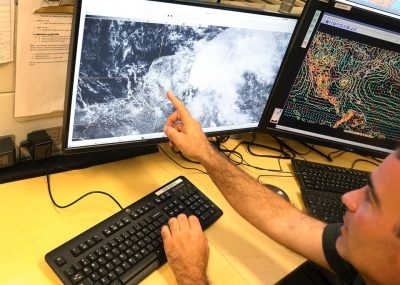What is the career in the field of meteorology?

Real-time and accurate information on weather are critical factors in predicting and responding to extreme weather events such as cyclones and floods. With such events increasing, the demand for personnel in the field of meteorology is increasing.
How it works
By analysing international climatic trends, meteorologists can calculate the threat of global warming and even predict catastrophic dust storms and cyclones such as the cyclone Nivar that recently hit Tamil Nadu.
As a meteorologist you can join the Met Office, the government body for weather forecasting and research. You can also work with environmental agencies for research on global warming and climate change.
Often meteorologists team up with atmospheric chemists and other scientists in the Pollution Control Board to track pollution levels that affect the air quality of cities.
You can also work as a weather forecaster for radio and television.
Required skills
An in-depth knowledge of Mathematics and Physics is key, coupled with a keen interest in environmental issues. Since a meteorologist's work involves observing and interpreting large amounts of data, communication skills are important too.
You also need to have the ability to handle extreme pressure, especially during adverse conditions such as cyclones or thunderstorms.
Excellent computer skills are a must as meteorology depends on advanced technology and software. Dedication and willingness to put in long hours is equally essential.
What to study
Those aspiring to work as scientific assistants with the Indian Meteorological Department need to appear for the staff selection commission exam. You need to be a Bachelor of Science (B.Sc.) with Physics and Maths or a Bachelor of Engineering (B.E.) or Bachelor of Technology (B.Tech) with Computer Science or Electronics to qualify. For a position as a meteorologist, you need to further pursue a Masters and crack the Union Public Service Commission exam. Meteorologists have more responsibilities than scientific assistants. Experienced meteorologists are in demand in the private sector as well.
Where to study
- Andhra University, Vishakhapatnam: M.Sc in Meteorology.
- Cochin University of Science and Technology: M.Sc in Environmental Technology.
- Indian Institute of Tropical Meteorology, Pune: Research in Science of Climate Change; Advanced Training in Earth System Sciences and Climate.
Abroad:
- University of Birmingham, the U.K.: M.Sc Applied Meteorology and Climatology: B.Sc Environmental Science,
- University of Exeter, the U.K.: M.Sc Mathematics (Climate Science).
- University College, London: M.Sc Climate Change.
Picture Credit : Google